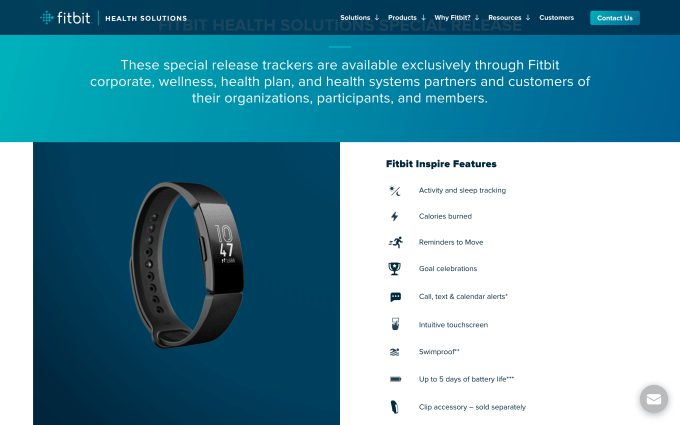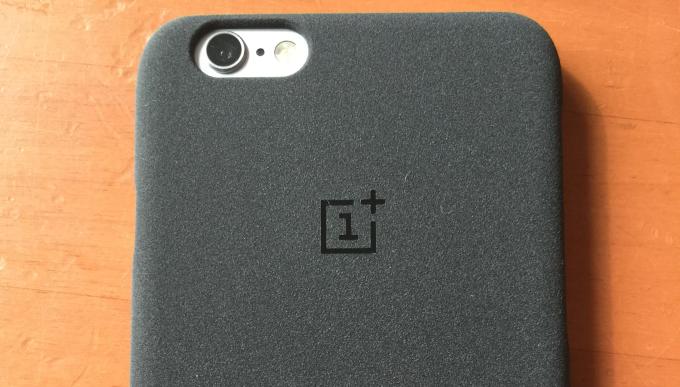
Which Computer Engineer Is Best Known For Giving The Mother Of All Demos? |
|
Think you know the answer? |
|
from How-To Geek http://bit.ly/2MZBdue

Which Computer Engineer Is Best Known For Giving The Mother Of All Demos? |
|
Think you know the answer? |
|

![]() Casey Ross / STAT:
Casey Ross / STAT:
A look at how US hospitals are integrating voice assistants like Alexa into patient care and the challenges facing them — At first it was a novelty: Hospitals began using voice assistants to allow patients to order lunch, check medication regimens, and get on-demand medical advice at home.

![]() Alexis C. Madrigal / The Atlantic:
Alexis C. Madrigal / The Atlantic:
Amazon now has 288M sq. ft. of warehouses, offices, retail stores, and data centers; all retail adds up to less than 20M sq. ft. and all of AWS uses 10M sq. ft. — The data on the company's real-estate holdings reveal a remarkable inflection point. — Amazon's origin story is firmly embedded …

![]() Tony Romm / Washington Post:
Tony Romm / Washington Post:
Hasty adoption of California's privacy law left many unresolved issues and privacy advocates fear industry lobbying will lead to revisions that weaken the law — SACRAMENTO — A landmark law adopted in California last year to rein in the data-collection practices of Facebook …

![]() Victor Luckerson / The Ringer:
Victor Luckerson / The Ringer:
Following major tech scandals, a look at how Stanford University is reevaluating its role in shaping Silicon Valley's future employees and leaders — Stanford has established itself as the epicenter of computer science, and a farm system for the tech giants.
The German Federal Cartel Office’s decision to order Facebook to change how it processes users’ personal data this week is a sign the antitrust tide could at last be turning against platform power.
One European Commission source we spoke to, who was commenting in a personal capacity, described it as “clearly pioneering” and “a big deal”, even without Facebook being fined a dime.
The FCO’s decision instead bans the social network from linking user data across different platforms it owns, unless it gains people’s consent (nor can it make use of its services contingent on such consent). Facebook is also prohibited from gathering and linking data on users from third party websites, such as via its tracking pixels and social plugins.
The order is not yet in force, and Facebook is appealing, but should it come into force the social network faces being de facto shrunk by having its platforms siloed at the data level.
To comply with the order Facebook would have to ask users to freely consent to being data-mined — which the company does not do at present.
Yes, Facebook could still manipulate the outcome it wants from users but doing so would open it to further challenge under EU data protection law, as its current approach to consent is already being challenged.
The EU’s updated privacy framework, GDPR, requires consent to be specific, informed and freely given. That standard supports challenges to Facebook’s (still fixed) entry ‘price’ to its social services. To play you still have to agree to hand over your personal data so it can sell your attention to advertisers. But legal experts contend that’s neither privacy by design nor default.
The only ‘alternative’ Facebook offers is to tell users they can delete their account. Not that doing so would stop the company from tracking you around the rest of the mainstream web anyway. Facebook’s tracking infrastructure is also embedded across the wider Internet so it profiles non-users too.
EU data protection regulators are still investigating a very large number of consent-related GDPR complaints.
But the German FCO, which said it liaised with privacy authorities during its investigation of Facebook’s data-gathering, has dubbed this type of behavior “exploitative abuse”, having also deemed the social service to hold a monopoly position in the German market.
So there are now two lines of legal attack — antitrust and privacy law — threatening Facebook (and indeed other adtech companies’) surveillance-based business model across Europe.
A year ago the German antitrust authority also announced a probe of the online advertising sector, responding to concerns about a lack of transparency in the market. Its work here is by no means done.
The lack of a big flashy fine attached to the German FCO’s order against Facebook makes this week’s story less of a major headline than recent European Commission antitrust fines handed to Google — such as the record-breaking $5BN penalty issued last summer for anticompetitive behaviour linked to the Android mobile platform.
But the decision is arguably just as, if not more, significant, because of the structural remedies being ordered upon Facebook. These remedies have been likened to an internal break-up of the company — with enforced internal separation of its multiple platform products at the data level.
This of course runs counter to (ad) platform giants’ preferred trajectory, which has long been to tear modesty walls down; pool user data from multiple internal (and indeed external sources), in defiance of the notion of informed consent; and mine all that personal (and sensitive) stuff to build identity-linked profiles to train algorithms that predict (and, some contend, manipulate) individual behavior.
Because if you can predict what a person is going to do you can choose which advert to serve to increase the chance they’ll click. (Or as Mark Zuckerberg puts it: ‘Senator, we run ads.’)
This means that a regulatory intervention that interferes with an ad tech giant’s ability to pool and process personal data starts to look really interesting. Because a Facebook that can’t join data dots across its sprawling social empire — or indeed across the mainstream web — wouldn’t be such a massive giant in terms of data insights. And nor, therefore, surveillance oversight.
Each of its platforms would be forced to be a more discrete (and, well, discreet) kind of business.
Competing against data-siloed platforms with a common owner — instead of a single interlinked mega-surveillance-network — also starts to sound almost possible. It suggests a playing field that’s reset, if not entirely levelled.
(Whereas, in the case of Android, the European Commission did not order any specific remedies — allowing Google to come up with ‘fixes’ itself; and so to shape the most self-serving ‘fix’ it can think of.)
Meanwhile, just look at where Facebook is now aiming to get to: A technical unification of the backend of its different social products.
Such a merger would collapse even more walls and fully enmesh platforms that started life as entirely separate products before were folded into Facebook’s empire (also, let’s not forget, via surveillance-informed acquisitions).
Facebook’s plan to unify its products on a single backend platform looks very much like an attempt to throw up technical barriers to antitrust hammers. It’s at least harder to imagine breaking up a company if its multiple, separate products are merged onto one unified backend which functions to cross and combine data streams.
Set against Facebook’s sudden desire to technically unify its full-flush of dominant social networks (Facebook Messenger; Instagram; WhatsApp) is a rising drum-beat of calls for competition-based scrutiny of tech giants.
This has been building for years, as the market power — and even democracy-denting potential — of surveillance capitalism’s data giants has telescoped into view.
Calls to break up tech giants no longer carry a suggestive punch. Regulators are routinely asked whether it’s time. As the European Commission’s competition chief, Margrethe Vestager, was when she handed down Google’s latest massive antitrust fine last summer.
Her response then was that she wasn’t sure breaking Google up is the right answer — preferring to try remedies that might allow competitors to have a go, while also emphasizing the importance of legislating to ensure “transparency and fairness in the business to platform relationship”.
But it’s interesting that the idea of breaking up tech giants now plays so well as political theatre, suggesting that wildly successful consumer technology companies — which have long dined out on shiny convenience-based marketing claims, made ever so saccharine sweet via the lure of ‘free’ services — have lost a big chunk of their populist pull, dogged as they have been by so many scandals.
From terrorist content and hate speech, to election interference, child exploitation, bullying, abuse. There’s also the matter of how they arrange their tax affairs.
The public perception of tech giants has matured as the ‘costs’ of their ‘free’ services have scaled into view. The upstarts have also become the establishment. People see not a new generation of ‘cuddly capitalists’ but another bunch of multinationals; highly polished but remote money-making machines that take rather more than they give back to the societies they feed off.
Google’s trick of naming each Android iteration after a different sweet treat makes for an interesting parallel to the (also now shifting) public perceptions around sugar, following closer attention to health concerns. What does its sickly sweetness mask? And after the sugar tax, we now have politicians calling for a social media levy.
Just this week the deputy leader of the main opposition party in the UK called for setting up a standalone Internet regulatory with the power to break up tech monopolies.
Talking about breaking up well-oiled, wealth-concentration machines is being seen as a populist vote winner. And companies that political leaders used to flatter and seek out for PR opportunities find themselves treated as political punchbags; Called to attend awkward grilling by hard-grafting committees, or taken to vicious task verbally at the highest profile public podia. (Though some non-democratic heads of state are still keen to press tech giant flesh.)
In Europe, Facebook’s repeat snubs of the UK parliament’s requests last year for Zuckerberg to face policymakers’ questions certainly did not go unnoticed.
Zuckerberg’s empty chair at the DCMS committee has become both a symbol of the company’s failure to accept wider societal responsibility for its products, and an indication of market failure; the CEO so powerful he doesn’t feel answerable to anyone; neither his most vulnerable users nor their elected representatives. Hence UK politicians on both sides of the aisle making political capital by talking about cutting tech giants down to size.
The political fallout from the Cambridge Analytica scandal looks far from done.

Quite how a UK regulator could successfully swing a regulatory hammer to break up a global Internet giant such as Facebook which is headquartered in the U.S. is another matter. But policymakers have already crossed the rubicon of public opinion and are relishing talking up having a go.
That represents a sea-change vs the neoliberal consensus that allowed competition regulators to sit on their hands for more than a decade as technology upstarts quietly hoovered up people’s data and bagged rivals, and basically went about transforming themselves from highly scalable startups into market-distorting giants with Internet-scale data-nets to snag users and buy or block competing ideas.
The political spirit looks willing to go there, and now the mechanism for breaking platforms’ distorting hold on markets may also be shaping up.
The traditional antitrust remedy of breaking a company along its business lines still looks unwieldy when faced with the blistering pace of digital technology. The problem is delivering such a fix fast enough that the business hasn’t already reconfigured to route around the reset.
Commission antitrust decisions on the tech beat have stepped up impressively in pace on Vestager’s watch. Yet it still feels like watching paper pushers wading through treacle to try and catch a sprinter. (And Europe hasn’t gone so far as trying to impose a platform break up.)
But the German FCO decision against Facebook hints at an alternative way forward for regulating the dominance of digital monopolies: Structural remedies that focus on controlling access to data which can be relatively swiftly configured and applied.
Vestager, whose term as EC competition chief may be coming to its end this year (even if other Commission roles remain in potential and tantalizing contention), has championed this idea herself.
In an interview on BBC Radio 4’s Today program in December she poured cold water on the stock question about breaking tech giants up — saying instead the Commission could look at how larger firms got access to data and resources as a means of limiting their power. Which is exactly what the German FCO has done in its order to Facebook.
At the same time, Europe’s updated data protection framework has gained the most attention for the size of the financial penalties that can be issued for major compliance breaches. But the regulation also gives data watchdogs the power to limit or ban processing. And that power could similarly be used to reshape a rights-eroding business model or snuff out such business entirely.
#GDPR allows imposing a permanent ban on data processing. This is the nuclear option. Much more severe than any fine you can imagine, in most cases. https://t.co/X772NvU51S
— Lukasz Olejnik (@lukOlejnik) January 28, 2019
The merging of privacy and antitrust concerns is really just a reflection of the complexity of the challenge regulators now face trying to rein in digital monopolies. But they’re tooling up to meet that challenge.
Speaking in an interview with TechCrunch last fall, Europe’s data protection supervisor, Giovanni Buttarelli, told us the bloc’s privacy regulators are moving towards more joint working with antitrust agencies to respond to platform power. “Europe would like to speak with one voice, not only within data protection but by approaching this issue of digital dividend, monopolies in a better way — not per sectors,” he said. “But first joint enforcement and better co-operation is key.”
The German FCO’s decision represents tangible evidence of the kind of regulatory co-operation that could — finally — crack down on tech giants.
Blogging in support of the decision this week, Buttarelli asserted: “It is not necessary for competition authorities to enforce other areas of law; rather they need simply to identity where the most powerful undertakings are setting a bad example and damaging the interests of consumers. Data protection authorities are able to assist in this assessment.”
He also had a prediction of his own for surveillance technologists, warning: “This case is the tip of the iceberg — all companies in the digital information ecosystem that rely on tracking, profiling and targeting should be on notice.”
So perhaps, at long last, the regulators have figured out how to move fast and break things.
![]() Tim O'Reilly / Quartz:
Tim O'Reilly / Quartz:
Hoffman and Yeh's “Blitzscaling” offers practical advice for startups but presents a lot of revisionist history and ignores the perils of VC-fueled hypergrowth — The pursuit of monopoly has led Silicon Valley astray. — Look no further than the race between Lyft and Uber to dominate the online ride-hailing market.
Fitbit has a new fitness tracker, but it’s one that you can’t buy in stores.
The company quietly uncorked the Inspire on Friday, releasing its first product that is available only to corporate employees and health insurance members. The idea is to offer a fully subsidized wearable that helps the company dig deeper into the corporate and business worlds.
The new devices are available as a wristband with the option of a clip. The basic tracker’s features are pretty standard and include activity and sleep tracking, calory burn and alerts from a connected phone. A higher specced model includes heart rate tracking, GPS for fitness tracking and deeper analytics on sleep. No prices are displayed on the website, but eligible customers won’t need to pay.
In an interview with CNBC, CEO James Park said the company has 6.8 million users on wellness programs include Fitbit devices via employers, health plans or hospital programs. In offering the Inspire — which is Fitbit’s cheapest device yet — the goal is to grow that number further still. Indeed, Park said Fitbit is a named covered fitness benefit in 42 Medicare Advantage plans across 27 U.S. states while it is working with insurance firms like UnitedHealth.

It makes sense that Fitbit is moving into that space because the consumer market is a tough one. Wearables are no longer an early novelty and competition is fierce. Apple dominates at the high end with the Apple Watch — which has doubled down on health features — while, at the cheaper end, companies like Xiaomi and its partner Huami offer basic trackers from as little as $30.
Fitbit went public in 2015. While its share price rallied to $6.48 on Friday on this news, it is still down massively from its list price of $20 and first-day trading close of $29.68. Today the company’s market cap stands at around $1.6 billion.
I’ve said it before, and I’ll say it again: 2019 just might be the year that smartphones get fun again. After years of similar form factors and slight upgrades, the mobile industry’s back is against the wall.
For the first time ever, sales are down, owning to economic factors and slower upgrade cycles. Most people who want good phones have had access to them for a while, and smartphone makers are providing fewer compelling reasons to buy new ones.
With their backs against the wall, handset makers are getting creative. We’ve already seen some early fruits from companies late last year and last month at CES. But MWC is really going to be their time to shine. It’s a much larger mobile show, and all parties know that everyone’s bringing the big guns.
Here’s what we expect to see in Barcelona February 24-28.

Huawei: The company looks to have a lot on tap for the event — in part because the North America-based CES is kind of a non-starter. CEO Richard Yu has hinted at a foldable and a 5G handset — which could well be the same phone. More mainstream are the P30 and P30 Pro. The company’s done a good job keeping it under wraps, but rumors about three or four rear-lenses have made the rounds.

LG: As is its move, LG has already announced the G8 ThinQ. We know that the new flagship will feature a front-facing camera with Time of Flight sensor that brings potential tricks like face unlock, along with AR applications. The V50 is also reportedly on tap, potentially bringing 5G along for the ride.

Microsoft: A surprise addition to this year’s show, Microsoft’s already announced an event for February 24, where we expect the company will show off the HoloLens 2. The next-gen version of the headset will arrive as the rest of the hardware and software world is finally ready to embrace augmented reality in earnest.

Motorola: The recent launch of the G7 may have taken the wind out of MWC’s sails, but rumors of a foldable Razr reboot are making the rounds.

OnePlus: We know that a 5G handset and the OnePlus 7 are both in the pipeline — and, perhaps, one and the same? There’s also tell of a closed-door event at the show, but most aren’t expecting any big unveils from the company.

Samsung: Don’t expect a ton out of Samsung this year. The company (inconveniently) is holding its big event a mere days before. Expect the S10 and all its iterations to get a big unveil that week in San Francisco, along with a preview of the company’s upcoming foldable. That doesn’t leave a heck of a lot for MWC, but perhaps we’ll get a peek into the world of wearables or PCs.
Sony: While Xperia phones have long felt like a bit of a loss leader, the electronics giant has always made a big show of launching flagship devices. Those, in turn, have long been a launchpad for some exciting camera tricks. This year, the Xperia XZ4 appears to be on tap for the event. The handset looks to be an interesting one, with a reported 21:9 aspect ratio display and a beefy 4,400 mAh battery.

![]() Nate Oh / AnandTech:
Nate Oh / AnandTech:
AMD Radeon VII review: at $699, the first 7nm gaming GPU is good value when used as a high-VRAM prosumer card but for pure gamers there are better options — For AMD's Radeon Technologies Group, 2018 was a bit of a breather year. After launching the Polaris architecture in 2016 …
Freshman Congresswomen and meme queen Alexandria Ocasio-Cortez is headed to Netflix. The streaming service said this week that it has snapped up ‘Knock Down the House,’ a Sundance award-winning documentary profiling the campaigns of four female progressive candidates, including Ocasio-Cortez, in the 2018 midterm election.
The documentary raised money via a Kickstarter campaign last year and it grabbed the Festival Favorite Award at the 2019 Sundance Film Festival, beating 121 other contenders to land the highest number of audience votes.
That acclaim and the rising star of Ocasio-Cortez looks to have made the picture a hot commodity. Deadline reports that Netflix is spending $10 million to secure the film, a price that — if true — would make it the most expensive Sundance documentary deal to date. It apparently beat off competition from NEON, Focus, Hulu and Amazon to land the production, according to Deadline.
‘Knock Down the House’ is produced by New York’s Jubilee Films and it profiles the campaigns of Las Vegas businesswoman Amy Vilela, Saint Louis nurse Cori Bush, coal miner’s daughter Paula Jean Swearengin in West Virginia and New York-based Alexandria Ocasio-Cortez, who worked double shifts at restaurants to pay her family’s bills.
None of the women had previous political experience, but they gained attention after taking on heavyweight incumbents because they believed that the American system needed to change. Of the challengers, only Ocasio-Cortez won the vote and made it to Washington.
“It is a transcendent moment when skilled filmmakers are able to train their lens on a major transformation,” Lisa Nishimura, VP of Original Documentaries for Netflix, said in a statement. “With intimacy and immediacy, [filmmakers] Rachel Lears and Robin Blotnik, bring viewers to the front lines of a movement, as four women find their voice, their power and their purpose, allowing all of us to witness the promise of true democracy in action.”
This is not Netflix’s first major foray into U.S. political programming. The company signed up former U.S. President Barack Obama and his wife Michelle in a production deal announced last year, although the exact content that’ll come from that collaboration is not clear at this point.
“They have their eyes on film and television, fiction and non-fiction. They want to do programming, storytelling that fits in with what they did during the presidency, obviously,” Netflix chief content officer Ted Sarandos said last year, although he did rule out a focus on politics.
Obama was the first guest on David Letterman’s Netflix show and he indirectly features in the company’s catalog under ‘Barry,’ a drama that’s based on his life as a college student.
It’s not often that you hear about a startup from Singapore with ambitions to expand to the U.S, but that’s exactly the goal for event booking service Delegate.
Founded in August 2015, the company aims to be a one-stop shop for booking an event, that covers corporate and professional functions, celebrations like weddings and more personal events such as birthdays or get-togethers.
Beyond the essential step of securing a venue, Delegate’s platform covers a range of different needs that include: food and beverage, photography and videography, flowers and decor, entertainment such as bands, invitation and gifts, event staff, production equipment and transport.
“We saw a huge gap in the market,” co-founders Melissa Lou and Jacqueline Ye, who both worked in the event industry prior to starting Delegate, told TechCrunch in a recent interview. “There was no one resource for finding events and resources.”

The Delegate platform covers venue booking, catering, staffing, entertainment and more.
But, beyond being a booking platform for consumers, Delegate has a smart hook that attracts those on venue and event hosting side. In addition to helping them generate bookings via its sites, Delegate offers a subscription ‘Pro’ product that helps them manage daily operations, generate leads, collect bookings and handle collaborations with others in their supply chain.
There’s also an element of granularity with the consumer side of the business. Delegate has set up options to make the myriads of suppliers, venues and more navigable for less experienced customers. That includes a ‘deals’ section for, well, deals and an inspiration board for the planning process which is itself inspired by Pinterest’s visual approach.
Coming soon, the company hopes to add payment plans to help make it easier to pay for major events, as well as a new offering focused squarely on business users and API integrations for third-party services.
Lou and Ye started the business nearly four years ago with around 100 vendors thanks to their personal and business networks. Today, it claims 1,700 vendors and 70,000 users across Singapore and Hong Kong, its first expansion market.

Delegate co-founders Jacqueline Ye and Melissa Lou (left and right) want to expand their service to the U.S. market.
Already present in two of Asia’s top event locations, where average spend is among the highest for the region. But since those countries are limited in size — Singapore’s population is just shy of six million, Hong Kong’s is around seven million, it makes sense that Delegate is now looking for its next moves. Lou and Ye said they plan to launch the service in “key cities” in Australia and the U.S. to tap what they see as lucrative markets, while Korea and Taiwan are also on the radar closer to home in Asia.
“We see these markets as a good fit for us,” Lou explained. “They have a fair share of corporate events already and, in particular, Australia is a good country because we have a good network there.”
Entering the U.S. might sound implausible to some, but already soft launches of the platform in LA and Austin have drawn interest from over 100 vendors, the Delegate co-founders said. That’s without any major marketing push to either businesses or consumers, and it gives the company optimism. Already the U.S. is a listed location on their service but, for now, there are less than a dozen vendors and there’s no specific location.
Beyond early outreach, the company has raised funds for expansion. Last month, Delegate announced a $1 million pre-Series A round from an undisclosed family office (with apparent links to the event industry) and angel investors who founded Zopim, the Singapore-based startup that sold to Zendesk for around $30 million in 2014.
That network and Saas expertise is likely to help with those ambitious global expansion plans, although Lou and Ye said they aren’t planning to raise their Series A just yet. They say they plan to stretch their runway and keep their costs lean, a practice the founders say they have stuck to since bootstrapping without outside funding for the first year of the business. It’s unlikely bet for most startups in Southeast Asia, but if Delegate can gain even just a small foothold in the U.S, it would be a massive validation of its business model and niche, and no doubt precipitate that larger Series A round.
For years, decades even, startup names have been getting weirder. This isn’t a scientific verdict, but it is how things have seemed to someone who spends a lot of hours perusing this stuff.
Startups have had a long run of branding themselves with creative misspellings, animal names. human first names, made-up words, adverbs and other odd collections of letters. It’s gone on so long it now seems normal. Names like Google, Airbnb and Hulu, which sounded strange at first, are now part of our everyday vocabulary.
Over the past few quarters, however, a peculiar thing has been happening: Startup founders are choosing more conventional-sounding names.
“As we reach the edge of strangeness… they’re saying: ‘It’s too weird. I’m uncomfortable,’” said Athol Foden, president of Brighter Naming, a naming consultancy. While quirky startup monikers haven’t gone away, founders are increasingly comfortable with less-unusual-sounding choices.
Foden’s observations are reflected in our annual Crunchbase News survey of startup naming trends. We’re seeing a proliferation of startups choosing simple words that describe their businesses, including companies like Hitch, an app for long-distance car rides; Duffel, a trip-booking startup named after the popular travel bag; and Coder, a software development platform.
But fortunately for fans of offbeat names, the trend is only toward less weirdness, not no weirdness. Those who wish to patronage seed-stage startups can still buy tampons from Aunt Flow, get parenting tips from an app called Mush or get insurance from a startup called Marshmallow.
Below, we look in more detail at some of the more popular startup naming practices and how they are trending.
For a long time, it seemed like a vast number of startups selected names largely by disabling the spell checker.
Most desirable dictionary words were already in use as domains or too pricey to acquire. So founders took to dropping vowels, subbing a “y” for an “i” or adding an extra consonant to make it work. The strategy worked well for a lot of well-known companies, including Lyft, Tumblr, Digg, Flickr, Grindr and Scribd.
These days, creative misspellings are still pretty common among early-stage founders. Our name survey unearthed a big number (see partial list) that recently raised funding, including Houwser, an upstart real estate brokerage; Swytch, developer of a kit for converting bikes to e-bikes; and Wurk, a provider of human resources and compliance software for the cannabis industry.
However, creative misspellings are getting less popular, Foden said. Early-stage founders are turned off by the prospect of having to spell out their names to people unfamiliar with the brand (which for seed-stage companies includes pretty much everyone).
One of the more fun naming styles is the pun. In our perusal of companies that raised seed funding in the past year, we came across a number of startups employing some sort of play-on words.
We put together a list of seven of the punniest names here. In addition to Aunt Flow, the list includes WeeCare, a network of daycare providers, and Serial Box, a digital content producer. Crunchbase News also created its own fictional startup — drone chicken delivery startup Internet of Wings — in an explainer series on startup funding.
Perhaps some day business naming will harken back to the industrial age, when corporate titans had exceedingly boring and obvious names.
Real companies with pun names that have matured to exit were harder to pinpoint. A couple that have gone public are Groupon and MedMen, a cannabis company that went public in Canada and is valued around CA$2 billion.
For some reason, it appears pun names are more popular in the brick-and-mortar world than the tech startup sphere. Restaurants specializing in the Vietnamese noodle soup Pho have dozens of play-on-word names memorialized in lists like this. Ditto for pet stores.
Personally, I’d like to see more internet startups rolling out pun-based names. Foden would, too, and he has even volunteered one suggestion for someone who wants to start a business applying artificial intelligence to artificial insemination: Ai.ai.
There are more than 170,000 non-obsolete words in the English language, per the Oxford English Dictionary. Startups, however, are convinced we need more.
Hence, one of the more enduringly popular business-naming practices is to come up with something that sounds like an actual word, even if it isn’t.
We put together a list of examples of this naming style among recently seed-funded startups.
It includes Trustology, which is building a platform to safeguard crypto assets; Invocable, a developer of voice design tools for Alexa apps; and Locomation, which focuses on autonomous trucking technology.
Naming advisors like to see the made-up word name trend on the rise, Foden said, because it’s the kind of thing companies pay a consultant to figure out. Another advantage is it’s easier to top search results for a made-up word.
Lastly, let’s look at those rebel startups choosing familiar dictionary words for their names.
We put together a list of some here. Besides the aforementioned Duffel, Hitch and Coder, there’s Decent, a healthcare startup; Chief, a women’s networking group; Journal, a note organizing tool; and many more.
Startups are less concerned than they used to be with snagging a dot-com domain that contains just their name. Commonly, they’ll add a prefix to their domain (joinchief.com, usejournal.com), choose an alternate domain (Hitch.net) or both.
Overall, Foden said, startups today are putting less emphasis on securing a dot-com suffix or an exact domain name match. Google parent Alphabet, in particular, made the alternate domain idea more palatable. It helped to see one of the world’s richest corporations forego Alphabet.com in favor of abc.xyz.
They say history repeats itself. If so, perhaps some day business naming will harken back to the industrial age, when corporate titans had exceedingly boring and obvious names like Standard Oil, U.S. Steel and General Electric.
For now, however, we live in era in which the most valuable companies have names like Google and Facebook. And to us, they sound perfectly normal.
Methodology: For the naming data set, we looked primarily at companies in English-speaking countries that raised seed funding after 2018. To broaden the potential list of names, we also included some companies funded in 2017. We also tried to limit the lists, where possible to companies founded in the past three years, although there were occasional exceptions.